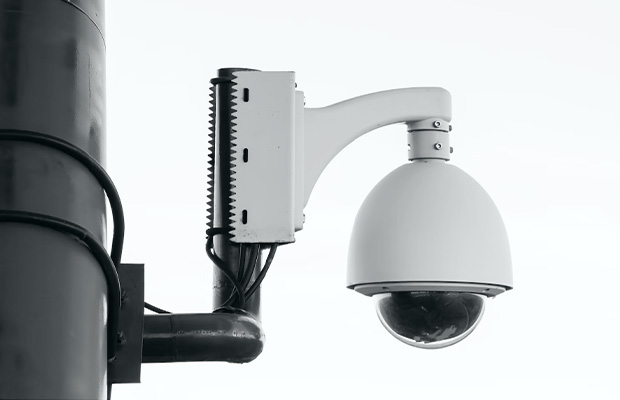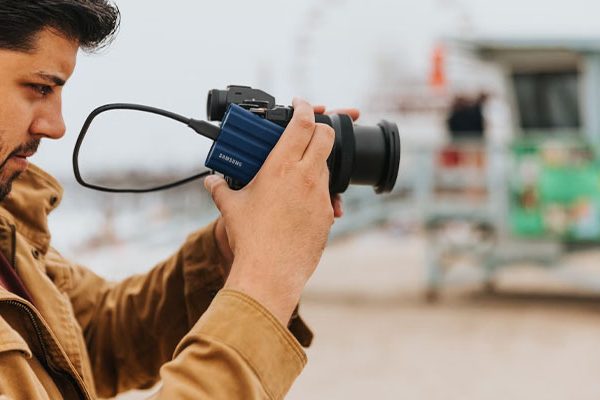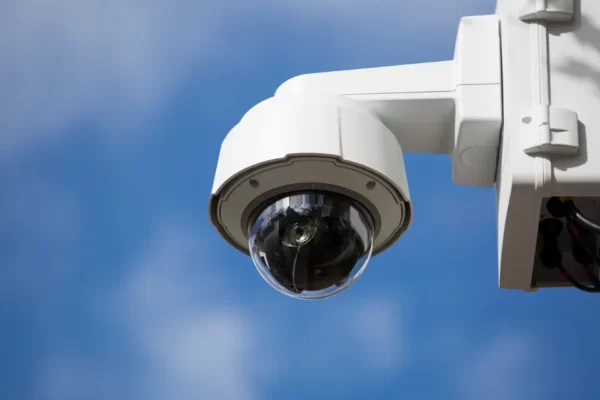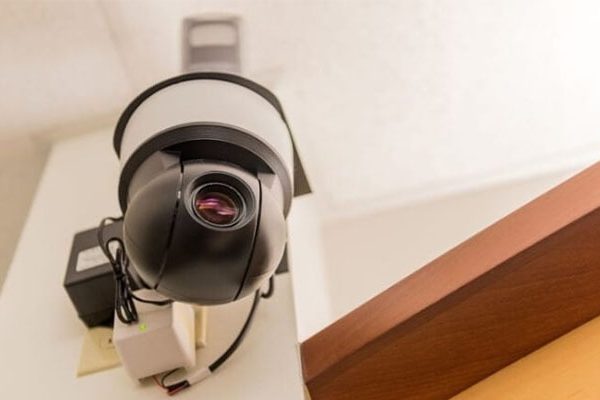When asking “how long do security cameras keep footage,” it helps to look at real-world practices. Most security camera footage is stored for 30 to 90 days.
The safety of your company depends heavily on how long you keep the video from security cameras. In the event that you ever need crucial evidence in connection with a crime or dispute, lost footage could mean coming up empty.
But how long should video camera footage be kept in storage for optimal results, and how can you store the most footage for the least amount of money? To find out, keep reading.
Table of Contents
How Long Do Security Cameras Keep Footage?
When asking “how long do security cameras keep footage,” it helps to look at real-world practices. Most security camera footage is stored for 30 to 90 days. Hotels, shops, supermarkets, and even construction firms can attest to this. In order to meet industry regulatory requirements, banks retain security camera footage for up to six months. The data must be kept for six months to a year according to some state casino regulations.
So, how long does CCTV footage last? In most cases, policy is more important than technical constraints when determining the solution.
There are basically three types of security video camera recording options:
- 24/7 consistent video recording.
- different times of the day that recording is planned.
- Alerts for specific motion types can be configured for the perimeter. (comparable to when activity extends beyond a particular geographic boundary.)
The type of recording you choose will affect how much storage you require. But that’s only one of the factors to take into account.
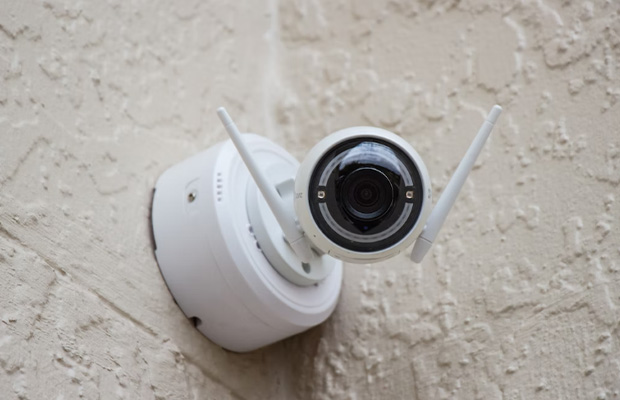
Determining how many hours or days a video surveillance camera can record information, there are a variety of technical considerations:
- Camera’s resolution More bandwidth is required to produce images of higher quality, which reduces the amount of time the camera can record data.
- Compression helps. In order to increase the storage capacity of the camera, video compression technology shrinks the size of the video.
- The number of cameras you have will change how much storage you need.
- The storage space itself will affect how long you can store footage.
Determining your storage requirements is something you should discuss with your security camera vendor because there is complicated math and other technical factors involved.
Also Read: Do Security Cameras Have Audio?
How is Video Footage Stored?
Let’s first examine the techniques used by modern security cameras to store video data. According to your unique requirements, preferences, and available resources, there are a few different options for storing video files. Video from security cameras used to be stored on VHS tapes or DVDs, but more recent systems have supplanted these antiquated practices. Most of today’s security camera systems use one or more of the following:
- Servers
- Hard Drives
- SD Cards
- Cloud Storage
Server Based Storage
Businesses frequently store camera footage on servers. NVRs and DVRs are examples of servers because they are external devices that use one or more hard drives to store video. These devices can be kept on-site or off-site from your place of business. a, a a a a a a a a a the a, the a, a a, Although this is a personal preference based on the security of the business location and the preferences of the business operators, it is common practice to store footage in an on-site server for smaller applications.
NVR Vs DVR
Using a network of IP cameras linked to a digital network, NVRs (network video recorders) operate. This makes it possible to access IP footage using a smartphone app or web browser. The more conventional system uses DVRs (digital video recorders), which connect analog security cameras with coaxial cables. The majority of contemporary security camera systems use NVRs, which are more frequently chosen because of their convenience and increased remote access capabilities in the modern world.
SD Card Storage
Your camera’s video footage can also be saved to an SD card as an alternative. Most cameras have built-in memory, but due to its limited capacity, you will typically need to buy an SD storage card to store more footage. The amount of footage you can store on a storage card will depend on the one you select. This video can be removed or saved indefinitely (or until the SD card is corrupted or broken). When used with a video server, SD cards make practical backup systems.
Cloud Storage
A great replacement or addition to server and hard drive storage is cloud-based video archiving. Modern IP cameras frequently include cloud storage, with the option to add more storage as needed. Video footage can be saved in the cloud as long as you have an internet connection. Through wireless connectivity, 4G, or 5G, this can even be accomplished in places without electricity, like construction sites. Modern applications benefit greatly from the convenience and security of cloud storage.
What Happens to Old Security Footage?
The majority of cameras and smaller external recorders store their video on SD cards. in the the the the the time of the the time of the the time of the the time of the the s a the. d aps ap, This ought to be sufficient for the majority of daily uses. With SD cards, the only thing you can count on is that you’ll always have the peace of mind that comes from knowing you have 14 days’ worth of footage saved. If the need no longer exists after this time, the footage can be manually deleted.
When the SD card’s storage capacity is full, the camera will begin to replace older footage if you don’t proactively delete obsolete footage. In the normal course of events, this may not matter, but in some cases, it might be problematic. With SD recordings, the only thing you can do if there is any footage you want to keep is export it and store it on your computer or an external hard drive before it gets overwritten.
How Much Storage Do I Need?
The appropriate amount of video storage for your company will vary greatly depending on the scale of your operations, the available recording space, the volume of footage, and whether your cameras record continuously. Most businesses will want to keep at least one month’s worth of records because doing so guarantees that you will have access to any events you might need to review in the future. Here are some common lengths of time for different security applications:
- Only one or two weeks’ worth of footage is frequently stored by home security cameras.
- The norm for medium-sized applications from businesses like hotels, supermarkets, construction firms, and other businesses is between 30 and 90 days.
- It is frequently advised to keep footage for three months for larger businesses.
- Frequently, footage is kept for six months to a year in high-risk locations with large cash reserves, like banks and casinos.
If you don’t use cloud storage, the more storage you need, the bigger your hard drives will need to be and the more money you’ll have to spend on storage.
Related: How Many Security Cameras Do I Need?
What If I Want to Keep Footage for Longer?
Purchasing more space is the simplest way to increase your video storage, but it is not always an option because it can be costly for your company. Here are some strategies business operators can use to keep video camera footage for longer, without compromising on important matters such as camera resolution:
Scheduled Recording
Continuous recording results in a large amount of unimportant footage filling up your storage system. By using scheduled or motion-detecting security cameras, you can minimize this and extend the lifespan of your video storage. You can eliminate sizable portions of pointless recording to reduce the amount of storage space used by programming cameras to only record at specific times of the day. The amount of time that videos can be stored can be more than doubled, for instance, by setting cameras to only record at night.
Motion Detection Cameras
Choose motion-detecting cameras that only take pictures when there is movement in the area if you want your security system to be constantly on guard without taking up unnecessary storage space. High accuracy and security are delivered by combining motion detection with commercial alarm monitoring. You can designate a specific area of your company to watch for movement and unauthorized entry using contemporary security cameras with line-crossing capabilities.
If you use motion-detecting cameras, keep in mind that busy areas will result in more recording and require more storage space. If your company is located near a busy street, for instance, your storage space may fill up much more quickly than it would in a place with little traffic. Many contemporary cameras have adjustable motion detection settings that let users target any pertinent events while not using up all of their storage, making them useful in a variety of situations.
Export Footage
It’s a good idea to export your camera footage to a computer or a different hard drive, like a thumb drive, so you can keep it forever without taking up space in your primary video storage system. Use this method wisely by only exporting the crucial moments or segments of the video that you might need to refer to later. You can significantly increase the space and financial efficiency of your system by reviewing your camera footage and backing up crucial moments onto a different device. This device can be kept in a location that is not connected to your place of business, preventing trespassers from entering and gaining access to your security footage.
Video Compression
To free up more space in your storage system, you can compress your video to make it smaller. Compression reduces the size of existing files and eliminates unused ones from your video footage without affecting the video’s final quality or content. It does this by analyzing your video footage. You can store more video on your server or SD card as a result of the practical space that has been liberated. MJPEG, H.264, and H.265 are the three primary video compression codecs used in contemporary IP camera systems, which are the majority of IP cameras.
Read More: Are There Cameras in Movie Theaters?
FAQs
How Long Do Security Cameras Keep Footage in Schools?
School security cameras typically store recorded footage for about 30-90 days. The amount of storage space a security system has to save footage affects how long it takes.
How Often Are Security Cameras Monitored?
Usually about a month (2–8 weeks) stored, and never reviewed, unless there’s an incident.
Final Words
How long are video recordings stored by security cameras? On the surface, this appears to be a simple question to ask, and as a result, one that should be easy to answer.
However, that is utterly off the mark.
There isn’t a straightforward or universal solution to the query. Everything depends on what you want to record, where you want to record it, and most importantly, what you plan to do with the recorded video footage. will ultimately be used for.
Read More:

